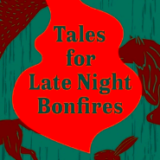ChiZine is a growing Canadian publisher of speculative fiction that specializes in dark fiction and horror. When Sandra Kasturi, the publisher, sent an email to a list we’re both on saying that ChiZine published a diverse range of books, including a small number that could be considered humour, I stroked my goatee and thought, Hmm. What would a publisher of dark fiction and horror consider funny? This could be very interesting… At the first opportunity, I picked up a couple of the books.
I’m glad I did. They were both hilarious.
Major Karnage, by Gord Zajac, did not seem promising, at first, given my general antipathy towards military science fiction. However, the satire of the macho military mindset inherent in the over-the-top nature of the title character quickly won me over. It didn’t hurt that the novel starts with the Major incarcerated in an asylum, his platoon missing, presumed dead. Worse, Earth has been at peace long enough that people see no need for military preparedness in general or Major Karnage in particular, putting a collar on him that will kill him if he gets too violent.
Ouch.
Major Karnage breaks out of the asylum, of course, and is immediately thrown into an alien invasion that involves a strange religious cult and a multinational entertainment corporation that looks suspiciously like one in the real world that was founded on cartoons of a rodent. Within the parody of an action-adventure story is some very smart satire.
Zajac also has a lot of fun with the mechanics of the plot. Watching Major Karnage deal with violent situations using a minimum of violence himself is endlessly amusing. The combination of smart and silly humour makes the novel readable on different levels, which should appeal to a broad variety of readers.
If the novel does have a flaw, it is one that is common to a lot of humourous narratives: at some point, the need to resolve the plot takes over, diminishing the work’s comic inventiveness. The first half of Major Karnage is a wild riot of comic invention; while there are new comic ideas in the second half, they don’t come nearly as frequently. But don’t let that deter you: this is a very funny book.
WARNING: SPOILERS
At first blush, James Marshall’s Ninja Versus Pirate Featuring Zombies seemed even less promising, the title evoking genre mashups that tended to be one-note jokes inflated to novel length (think: Little Women and Werewolves or Abraham Lincoln: Zombie Hunter). I’m happy to say that that first impression couldn’t be more wrong.
Guy Boy Man, the main character in the novel, is a teenage high school student who doesn’t hide the fact that he’s a pirate. You know he’s a pirate because he wears a hat he claims he stole from the Pope. And he doesn’t live by the rules. And he tells everybody who will listen that he’s a pirate, but he’s not, you know, too insistent about it because he doesn’t care if anybody believes him or not, because caring wouldn’t be cool and, you know, whatever.
Most of the kids in the school are zombies. This puts the book firmly in the long tradition of zombies as metaphor for unthinking human beings (for example: the zombies of Dawn of the Dead representing mindless consumerism, or the zombies of Shaun of the Dead representing the soul-deadening aspects of the suburbs); in this case, the zombies represent the conformity fostered by the education system.
Or, do they? Guy Boy Man is told repeatedly throughout the novel, by more than one character, that zombies do not exist. It’s possible that he is the only character in the novel who sees things as they really are. It’s also possible, though, that he is completely psychotic, the ultimate unreliable narrator, and pretty much the entire book is a bizarre fever dream that takes place in his imagination. I must admit that I preferred this second reading.
To illustrate why, let me recap a scene late in the novel: Guy Boy Man and some of the followers he believes he has because he led a successful zombie massacre at the school, go to a farm in the middle of the night and uproot babies that have been planted there by the zombies. The babies have been created without brains or sensations of any kind; Guy Boy Man believes that if he can steal the babies away, it will be a major blow to the zombie cause. Details accumulate. A couple of people play catch with an uprooted baby, not especially concerned when they miss and the baby bounces off objects. Worse: as they trucks full of babies drives off, one falls off the back, getting crushed by the truck behind it, but we’re told that’s okay because the babies aren’t grown with bones, so the truck hardly felt anything.
It’s a funny scene, but also horrific. However, for readers who may be too squeamish to follow him through the scene, Marshall provides an out: as he’s driving away, the Ninja jumps into the cab next to Guy Boy Man and asks him why he spent so much time uprooting heads of lettuce. (Ass he does throughout the novel when confronted with information that contradicts his vision, Guy Boy Man quickly changes the subject.) It’s hard to get the images out of your head, but, at the same time, you’re offered a more benign interpretation of events if you need it.
Within the darkness of the fictional world he has created, Marshall is pretty smart about the teen psyche. Early in the book, Guy Boy Man lectures a couple of other characters for using phrases that could be considered insensitive. But, not long after, he himself launches into a lengthy tirade about how much easier Africans would have it if they would just be willing to sell their babies to wealthy westerners for food (think: Swift’s “A Modest Proposal” on speed). How to reconcile these two positions? The best I can come up with is that Guy Boy Man has been taught the importance of sensitive language, which is relatively easy to do, but nobody has actually taught him empathy or compassion, which is much harder to do. This is a brilliant satirical insight.
Ninja Versus Pirate Featuring Zombies isn’t perfect. There is one point, for instance, where Guy Boy Man starts putting together jewels for his girlfriend, Baby Doll15; they get so unwieldy that he affixes a chain to them so that they can be more easily carried around. Marshall didn’t have to come out and refer to it as a ball and chain; the symbolism was pretty obvious without directly stating it. Still, the flaws in the novel are minor and infrequent compared to the excellence of the overall concept and its execution.
As one might expect given the nature of the publisher, both Major Karnage and Ninja Versus Pirate Featuring Zombies were dark comedic rides. They ain’t Friends, and they’re clearly not for everybody. But if you like your humour dipped in acid, these books will definitely be for you.










